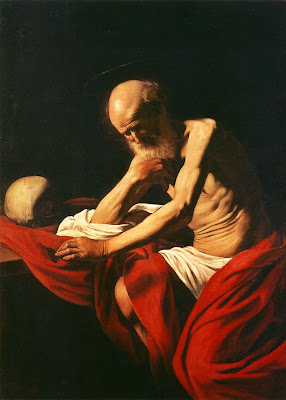
An Explanation:
In early years, I devoured books. My father once explained, "He is [beat] an aggressive reader." The family unit entire was, and where other young ones were chastised for watching TV in excess, our little band of progenoids were perhaps the only children punished for reading too much -- "Aaron! Put the book down and clean or I'll rip your eyes out!" were fond memories of mother.
Then began the public educations with literary force-feedings, the ink staining our teeth. After thirteen years of this, it's no wonder that many a person despises reading and shudders at the thought of turning paper-pulp pages. Immersed in the thrilling seriousness of it all, I forgot
why I read in the first place: because it was fun, entertaining, exciting.
Nevertheless, I love books. Even the highbrow. But lowbrow has a place in our lives, an important one. Oddly enough, it keeps our feet on the ground, more than does the verite. We read for pleasure, we escape, we feel good.
So no more shame for the lowbrow, the comics, horror, mystery, crime, fantasy, sci-fi, romance. We need it. Plus, I think it's often more the illuminator of humanity than the laboriously meaningful novels.
This rocket will now be launching with a Mr. Brian Michael Bendis.This bald guy to the right is him.
He is probably the most prolific of contemporary comic books writers, at times penned 3-4 titles at once. And they were dang good.
The best of Bendis and most impressive
are his early works: Goldfish, Jinx, and
Torso.
They abound with an amateur's passion, are funny,
and often poignant. His characters grasp for
humanity in amoral worlds and are forced to
balance survival and conscience on a mortal scale.
Today we will consider Jinx, later Torso.
Jinx is a modern retelling of Serio Leones' The Good, the Bad, and the Ugly, but Bendis' crime
novel delves deeper into the nature of greed, desire, and the implications of moral compromise.
Bendis' illustrations are rendered in a noir-ish black and white, and were actually drawn from
photographs of his friends who graciously posed for the project.
My favorite moment of the novel is the
first, a flashback. The protagonist, Jinx, reclines,
in awe of countless bills descending like snow.
One man is dead in the foreground, another is
mortally wounded. Her eyes, however cannot
leave the money. And amid the loss of human life,
all she can say is, "Wow."
This one panel introduces us perfectly to the
struggles that pervade Bendis' early work.
Pick it up of whichever bookselling site you prefer,
or venture into the unknown realms, the local comic
shop, which you can find here.
*a quick rant. I have a disdain for the term "graphic novel". A rose by any name would smell as sweet. It's juvenile to have to
change the name of something before we will regard as worthwhile, yet it seems necessary in a pseudo-P.C. sort of way. But to me they are just "comics", as I have always known them, being just as good.


















